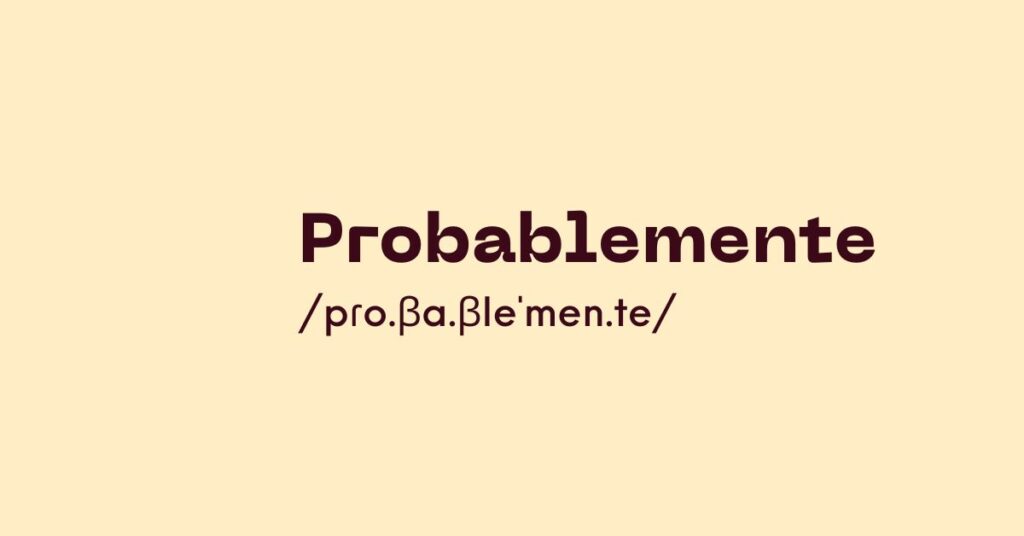Today’s Spanish word of the day is “probablemente”.
It’s an adverb meaning “probably”.
You may have noticed that while many English adverbs end in -ly, many Spanish adverbs end in -mente. Here are just a few examples:
- Probablemente – Probably
- Rápidamente – Quickly (rapidly)
- Honestamente – Honestly
- Fácilmente – Easily
- Completamente – Completely
This doesn’t mean that all Spanish adverbs end in -mente, but it’s a common pattern.
The Spanish word “probablemente” comes from the adjective “probable” (spelled identically in both English and Spanish). The word “probable” comes from Latin probabilis, from which we also get words like “probability” (“probabilidad” in Spanish).
Example sentences
Los autobuses están llenos, así que probablemente tengamos que caminar.
The buses are full, so we’ll probably have to walk.
Este libro probablemente sea uno de los más vendidos este año.
This book is probably one of the bestsellers this year.
Probablemente sea una buena idea descansar un poco antes del viaje.
It’s probably a good idea to rest a bit before the trip.
Probablemente no recibamos una respuesta hasta el próximo lunes.
We probably won’t get a response until next Monday.
La forma en que vivimos probablemente cambiará en los próximos 50 años.
The way we live will probably change in the next 50 years.

